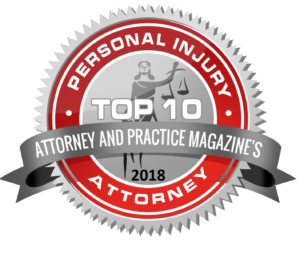Riding a bicycle in Virginia offers a sense of freedom and a great way to stay active while reducing one’s carbon footprint. However, like any mode of transportation, cycling comes with its own set of risks. Accidents can happen at any time and under any circumstances. A common concern for cyclists involved in accidents is whether they can pursue legal action if they were not wearing a helmet at the time of the incident. This issue can be complex and involves an understanding of Virginia’s laws, the concept of negligence, and how these elements might influence the outcome of a personal injury case.

Understanding Virginia’s Bicycle Helmet Laws
To begin understanding whether you can sue for a bicycle accident if you were not wearing a helmet, it is important to first examine Virginia’s bicycle helmet laws. In Virginia, there is no statewide mandate requiring all cyclists to wear helmets. The state leaves helmet regulations largely up to local jurisdictions. As a result, helmet laws can vary significantly depending on where you are riding in the state. Some counties and cities may require helmet use for certain age groups, particularly for minors, while others may have no helmet requirements at all. This variability means that the legal implications of not wearing a helmet could differ depending on the location of the accident.
Even in areas where helmet use is encouraged or mandated for specific age groups, it is critical to note that the absence of a helmet law does not necessarily prevent a cyclist from seeking compensation after an accident. The critical factor in personal injury cases typically revolves around the concept of negligence rather than the mere fact of helmet use or non-use.
The Role of Negligence in Bicycle Accident Claims
Negligence is a cornerstone of personal injury law, and it plays a pivotal role in determining the outcome of a bicycle accident lawsuit in Virginia. To succeed in a lawsuit, the injured party must prove that another party’s negligence directly caused the accident and the resulting injuries. Negligence, in this context, refers to a failure to exercise reasonable care, which can include actions like speeding, failing to yield, or driving while distracted. In a bicycle accident case, the focus is often on the conduct of the parties involved in the accident, rather than on whether the cyclist was wearing a helmet.
Virginia follows the legal doctrine of contributory negligence, which is particularly stringent. Under contributory negligence, if the injured party is found to be even partially at fault for the accident, they may be barred from recovering any compensation. However, not wearing a helmet does not automatically equate to contributory negligence. In other words, the fact that you were not wearing a helmet at the time of the accident does not mean you are automatically at fault or that you cannot pursue a lawsuit. The court will consider whether your actions contributed to the cause of the accident, not merely the severity of your injuries.
How Not Wearing a Helmet May Affect Your Case
While not wearing a helmet does not necessarily bar you from suing for damages, it could influence certain aspects of your case. One of the most significant ways it could impact your case is in the determination of damages. If your injuries were exacerbated by the lack of a helmet, the defendant’s legal team might argue that your compensation should be reduced. This is because the injuries might have been less severe had you been wearing a helmet. However, this argument typically pertains to the extent of damages rather than liability. In other words, the defendant may not be able to avoid liability altogether, but they may attempt to reduce the amount of compensation you are awarded.
For example, if you sustain a head injury in a bicycle accident and were not wearing a helmet, the defendant might argue that your decision not to wear a helmet contributed to the severity of your injuries. However, it is essential to distinguish between the cause of the accident and the cause of the injury. If the defendant was at fault for causing the accident—such as by running a red light or failing to yield—they could still be held liable for the accident itself, even if your decision not to wear a helmet influenced the extent of your injuries.
Comparative Cases and Legal Precedents
Virginia courts have addressed cases where a cyclist’s failure to wear a helmet was a factor in the lawsuit. In these cases, the courts have typically focused on the issue of liability and the conduct of the parties involved in the accident. The central question is often whether the defendant’s actions were the primary cause of the accident. If the defendant’s negligence is established as the primary cause, the fact that the cyclist was not wearing a helmet may be considered secondary and might only affect the damages awarded.
It is also worth noting that Virginia law does not require adults to wear helmets, which can weaken the defendant’s argument that your lack of a helmet constitutes negligence on your part. If you were an adult riding in an area without a helmet law, the court might view the issue of helmet use as irrelevant to the determination of fault.
Pursuing Compensation After a Bicycle Accident
If you were involved in a bicycle accident in Virginia and were not wearing a helmet, you still have the right to pursue compensation for your injuries. The success of your claim will depend on the specific circumstances of the accident, including the actions of the other parties involved and the extent of your injuries. Compensation in bicycle accident cases can cover a range of damages, including medical expenses, lost wages, pain and suffering, and other related costs.
In pursuing a claim, it is crucial to gather as much evidence as possible to support your case. This evidence can include police reports, witness statements, photographs of the accident scene, and medical records. It is also advisable to seek legal advice to navigate the complexities of Virginia’s contributory negligence law and to build a strong case.
Choosing a Personal Injury Attorney Personal Injury Case TimelineRelated Videos
The Importance of Legal Representation
Given the complexities of Virginia’s negligence laws and the potential impact of not wearing a helmet, seeking legal representation is essential if you are considering a lawsuit after a bicycle accident. An experienced attorney can help you understand your rights and options, assess the strength of your case, and advocate on your behalf to ensure you receive fair compensation.
Legal representation is particularly important in cases involving contributory negligence, as the opposing party may attempt to shift blame onto you to avoid liability. A skilled attorney can counter these arguments by focusing on the defendant’s actions and demonstrating that their negligence was the primary cause of the accident.
Moreover, an attorney can help you navigate the legal process, from filing the necessary paperwork to negotiating with insurance companies or representing you in court. This can be especially important if you are dealing with severe injuries or other challenges in the aftermath of the accident.
If you have been injured in a bicycle accident in Virginia and were not wearing a helmet, you may still have a valid legal claim. The key is to understand how Virginia’s laws apply to your case and to take appropriate steps to protect your rights. At NovaLegalGroup, P.C., we understand the challenges you may face after an accident and are committed to helping you pursue the compensation you deserve.
Our team of dedicated attorneys has extensive experience handling bicycle accident cases and can provide the legal support you need during this difficult time. We will work with you to build a strong case, advocate on your behalf, and pursue the best possible outcome for your situation. Do not let the complexities of the legal system or concerns about not wearing a helmet prevent you from seeking justice.
Contact NovaLegalGroup, P.C. today to schedule a consultation and learn more about how we can assist you in your bicycle accident case. Your path to recovery and justice starts with understanding your rights and taking action to protect them.










